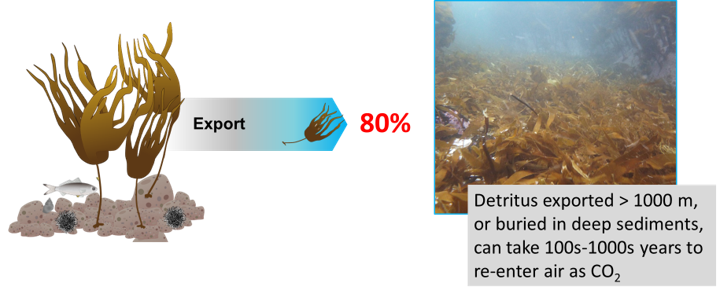Project Description
With the aim of identifying additional carbon sequestration opportunities for Woodside Energy, this project investigated natural processes which capture carbon in kelp. Firstly, this project revealed a significantly slower in situ decay rate of the dominant kelp species Ecklonia radiata compared to that of Scytothalia dorycarpa, a cooler water fucoid seaweed. We also observed little change in percent carbon during decomposition. This suggests that about one quarter to half the kelp biomass which is carried offshore in dense shelf water cascades has the potential to reach deep ocean sinks and be sequestered. The results of this project can be utilised in benthic particle tracking models to pair carbon fluxes of kelp with local oceanographic data to estimate annual carbon sequestration potential of both coastal and offshore kelp forests.


